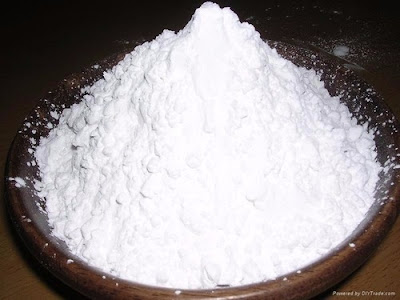Zinc Dust : Formula, Properties and Uses
Zinc dust is a fine gray powder composed primarily of metallic zinc. It plays a noteworthy role in several industrial and chemical operations. From serving as an anti-corrosion facilitator to functioning in paints and coatings, zinc dust is valued for its chemical reactivity and protective elements. In this blog, we will investigate in detail the zinc dust formula, its key characteristics, and various zinc dust uses across industries.
What is Zinc Dust?
Zinc dust is a powdered form of zinc metal. It is produced through the condensation of zinc vapor, followed by milling or atomizing into fine particles.. The particle size and purity may vary depending on the application, despite that its core composition remains largely zinc with a metallic sheen and powdery sharpness.
This material is substantially used in applications where zinc’s electrochemical operation can become harnessed for safety or reactivity. Due to its lightweight nature and non-toxic profile, it finds a place in both heavy industry and consumer products.
Zinc Dust Formula:
The zinc dust formula is essentially the same as common zinc, which is Zn. Outside, in powdered form, its surface area is significantly increased, crafting it more chemically reactive than its mass counterpart.
Chemical formula: Zn
Molecular weight: 65.38 g/mol
On the other hand it consists of only zinc atoms, its reactivity and physical characteristics that determine its effectiveness. For proof, in galvanic applications or as a reducing facilitator, zinc dust performs more promptly than solid zinc.
Traits of Zinc Dust
The physical and chemical attributes of zinc dust do it proper for a range of industrial applications. Below are some key attributes:
Presence: Fine gray powder with a metallic sparkle
Density: Approximately 7.1 g/cm³
Melting Point: 419.5°C
Overheating Point: 907°C
Solubility: Insoluble in water though reacts with acids
Reactivity: Too reactive with acids and separate oxidizing agents
Conductivity: Positive conductor of electricity
Due to its high surface area and fine particulate nature, zinc dust oxidizes naturally when in the open to air or moisture, creating it extremely turning into for anti-corrosion applications.
Zinc Dust Uses
Zinc dirt has extensive packages in various sectors, together with paints, coatings, batteries, and metallurgy.. Let’s search the noteworthy zinc dust uses in detail:
1. Anti-Corrosion Paints and Coatings:
One of the primary zinc dirt makes use of it within the method of anti-corrosion paints and primers. Known as zinc-wealthy coatings, those paints are used to defend metallic forms like bridges, pipelines, ships, and oil rigs. Zinc provides a cathodic defend to the underlying steel, meaning it sacrifices itself to restrict the corrosion of the metallic. This makes zinc dust an indispensable constituent in marine and commercial protective coatings.
2. Galvanization
Zinc dirt is further used in the galvanization direction, in clear in bloodless galvanizing. Here, zinc-rich paints containing zinc dirt are enforced to steel surfaces to guard them from rust and corrosion. Unlike hot-dip galvanizing, cold galvanizing is finished at ambient temperatures and is regularly used for touch-up or repair paintings.
3. Chemical Reagent
Zinc dust serves as a reducing middleman in many chemical reactions. It is endlessly used in organic synthesis and metallurgical tactics to reduce metal salts into their metallic forms. In chemical manufacturing, it plays a role in synthesizing compounds like sodium hydrosulfite and various organozinc compounds.
Firms like Amizara Speciality Chemicals LLP, a recognized chemical company in Mumbai, rely on high-quality zinc dust for use in their diverse chemical formulations.
4. Battery Manufacturing
Zinc dust is as well used in battery technology, especially in alkaline and zinc-air batteries. Its role is to serve as an anode material, offering high force density and long shelf life. These batteries are liberally used in hearing aids, remote sensors, and intricacy lighting systems.
5. Explosives and Pyrotechnics
Due to its reactivity, zinc dust is sometimes used in the formulation of explosives and pyrotechnic devices. It reacts busy with oxidizing middlemen to put together heat and light. Still this is a more niche application, it highlights the chemical versatility of zinc dust.
6. Rubber and Plastic Industry
Zinc dust is used in the rubber industry as an switch in the vulcanization technique. It helps transform the suppleness and durability of rubber products. In plastics, it serves as a stabilizer, protecting funds from degradation due to UV light and heat.
7. Water Treatment
In clear water treatment steps, zinc dust is employed to remove heavy metals and second contaminants through redox reactions. It aids in the purification of industrial effluents in grow of their release into the surroundings.
Planetary regulations have increased the demand for such treatments, and reliable suppliers like Amizara Speciality Chemicals LLP help industries comply with stringent quality and safety norms.
Safety and Handling:
While zinc dust is relatively safe to chat with, it is flammable and can pose a risk of dust explosions if not stored properly. It should become kept in tightly sealed containers away from heat, sparks, and open flames. Personal protective equipment like gloves and masks is recommended during handling to kept away inhalation or skin connection.
Exact training and obedience with safety data sheets (SDS) are notable for any facility working with zinc dust. Premier providers usually certify that their products comprise of safety documentation.
Zinc dust is a versatile and key material in multiple industries due to its chemical reactivity and protective elements. With an ordinary zinc dust formula of Zn, it plays a powerful role in corrosion prevention, chemical synthesis, battery production, and more. As industries continue to demand high-performance substances, zinc dust remains a positive capital for innovation and competence.
For reliable sourcing, corporations turn to trusted suppliers like Amizara Speciality Chemicals LLP, an optimal chemical company in Mumbai known for quality, exactness, and technical talent in specialty chemicals.




Comments
Post a Comment